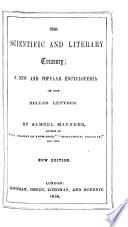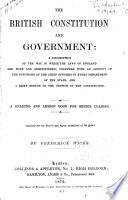 | Lord Alexander Fraser Tytler Woodhouselee - History - 1854 - 286 pages
...of the civil law, to have two witnesses to prove every fact, unless it be in cases of treason ; nor to reject one witness because he is single, or always...upon other circumstances reasonably encounter them. It may fall out that a jury, upon their own knowledge, may know a thing to be false which a witness... | |
 | Lord Alexander Fraser Tytler Woodhouselee - World history - 1854 - 540 pages
...rules of civil law, to have two witnesses to prove every fact, unless it be in cases of treason ; nor to reject one witness because he is single, or always...two witnesses'^ if the probability of the fact does upoo other circumstances reasonably encounter them. It may fall out that a jury, upon their own knowledge,... | |
 | Lord Alexander Fraser Tytler Woodhouselee, Edward Nares - World history - 1857 - 294 pages
...of the civil law, to have two witnesses to prove every fact, unless it be in cases of treason ; nor to reject one witness because he is single, or always...upon other circumstances reasonably encounter them. It may fall out that a jury, upon their own knowledge, may know a thing to be false which a witness... | |
 | Samuel Maunder - 1858 - 868 pages
...possess, to try some peculiar question. There are also special juries in ject one witness, because be is single ; or always to believe two witnesses, if...other circumstances reasonably encounter them; for the cases where one of the parlies is above the i common rank. ; JU'RY-MAST, a temporary or occasional... | |
 | John Reeves, William Francis Finlason - Law - 1869 - 686 pages
...civil law — viz., to have two witnesses to prove every fact, (unless it be in cases of treason), nor to reject one witness because he is single, or always...simply by witnesses, but by jury ; nay, it may so fall out that a jury, upon their ovm knowledge, may know a thing to be false that a witness swore to... | |
 | John Reeves, William Francis Finlason - Law - 1869 - 686 pages
...civil law — viz., to have two witnesses to prove every fact, (unless it be in cases of treason), nor to reject one witness because he is single, or always...witnesses, if the probability of the fact does, upon other circumstance», reasonably encounter them ; for the trial is not here simply by witnesses, but by jury... | |
 | Frederick Wicks - Administrative law - 1872 - 236 pages
...civil law—viz., to have two witnesses to prove every fact, unless it be in cases of treason, nor to reject one witness because he is single, or always...here simply by witnesses, but by jury; nay, it may so fall out that a jury, upon their own knowledge, may know a thing to be false that a witness swore to... | |
 | Frederick Wicks - Administrative law - 1872 - 278 pages
...civil law — viz., to have two witnesses to prove every fact, unless it be in cases of treason, nor to reject one witness because he is single, or always...simply by witnesses, but by jury ; nay, it may so fall out that a jury, upon their own knowledge, may know a thing to be false that a witness swore to... | |
 | James Bradley Thayer - Evidence (Law) - 1900 - 1296 pages
...the civil law, viz. to have two witnesses to prove every fact, unless it be in cases of treason, nor to reject one witness because he is single, or always...here simply by witnesses, but by jury; nay, it may so fall out, that the jury upon their own knowledge may know a thing to be false that a witness swore... | |
 | Electronic journals - 1902 - 938 pages
...the civil law, viz. to have two witnesses to prove every fact (unless it be in cases of treason), nor to reject one witness because he is single, or always...trial is not here simply by witnesses but by jury." 1696, Vaughan's Trial, 13 How. St. Tr. 485, 535, treason upon the high seas ; it was argued that the... | |
| |